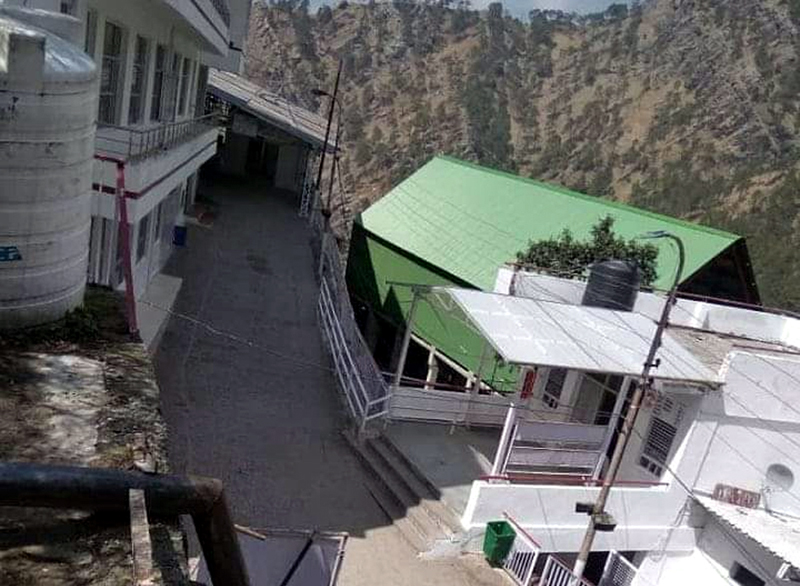Limited decoration at Shri Mata Vaishnodevi Shrine
Mohinder Verma
JAMMU, Mar 24: Probably for the first time, there will be only prayers but no devotees in the temples during the Navratras, which are commencing from March 25. Even the cave shrine of Shri Mata Vaishnodevi situated in the Trikuta Hills will have very limited decoration this time in total contrast to the practice in vogue till previous holy days.
This is all because of shutdown imposed by the Government across the Union Territory of Jammu and Kashmir on the instructions of Government of India in order to contain the spread of Coronavirus, which has engulfed most of the countries across the world.
The lockdown has not only blocked the entry of devotees to the temples especially at a time when auspicious Navratras are all set to begin but dampened the spirit of festival because people are finding it difficult to make purchases without hassles for the celebration of festival even at their homes.
As per the information available with EXCELSIOR, all traditional rituals will be strictly followed at the cave shrine of Shri Mata Vaishnodevi and prayers will be offered to the Goddesses by the priests as per the fixed time-schedule but there will not be any devotee this time to participate in the same.
Even Shat Chandi Maha Yagya will be organized by Shri Mata Vaishnodevi Shrine Board at the holy cave shrine on auspicious occasion of beginning of Navratras amidst chanting of vedic mantras and performance of other religious ceremonies as per past practice but the only difference this time will be the complete absence of devotees.
Besides absence of devotees the major change which the cave shrine will witness is limited decoration in total contrast to the previous practice.
“As the pilgrimage has been suspended to contain spread of Coronavirus we have decided to restrict the decoration to main portion of the cave shrine as nobody will be there to mesmerize the decoration of other places”, said Chief Executive Officer (CEO) of Shri Mata Vaishnodevi Shrine Board Ramesh Kumar when contacted.
It is pertinent to mention here that only front portion of the cave is shown during the live telecast of Arti of Mata Vaishnodevi Shrine every day on a particularly television channel.
However, there will not be any change in the rituals and prayers and everything will be organized as per past practice, the CEO said, adding “keeping in view the advisories issued by the Government only priests and few officers of the Shrine Board would participate in the prayers on the beginning of Navratras”.
“We are also dejected over keeping the shrine out of bound for the pilgrims but the prevailing situation demands social distancing to avoid spread of Coronavirus”, Ramesh Kumar said, adding “we will pray before the Goddesses to keep everybody safe from this life-threatening virus”.
In response to a question, he said that Shrine Board has also minimized the presence of its staff at various locations between Katra and holy cave and only maintenance staff has been allowed to work. “However, there is no compromise on the security aspect”, the Chief Executive Officer added.
The most dejected are those devotees who used to visit the cave shrine on Navratras regularly during the past several years but this time they will have to pay obeisance only by witnessing live telecast of Arti on the television.
Similarly, there will be only special prayers but no devotees in other temples of Jammu in general and Kali Mata Mandir inside Bahu Fort, Mahamaya Temple near By-pass Road in the outskirts of Jammu city and Kol Kandoli temple at Nagrota in particular.
“I used to pay obeisance at Kali Mata Temple Bahu Fort every day but this time I am going to be deprived of visiting the Mandir even during the auspicious Navratras”, said Prof Satish Sharma, a resident of Paloura.
However, people hope that God and Goddesses will protect everybody from the deadly Coronavirus and situation will return to normal shortly.
Because of lockdown and restrictions large number of people faced immense difficulties in making purchase of ‘Pooja Samagri’. However, for the overall good of the society they preferred to adjust themselves to the prevailing situation.


